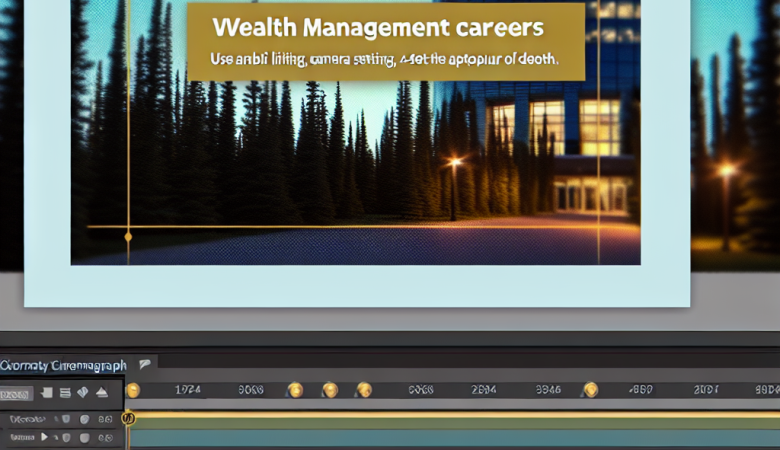How to succeed in your career development?At a time of digital transformation and the mutation of many professions, it is not necessarily easy to project oneself into one’s professional future. In search of leaders or high potentials, companies are eager to recruit executives who have a real professional project and a long-term vision of their future.
As proof, the question “where do you see yourself in 10 years?” is always a topical one in job interviews. Whether you’ve been in your job for a long time or have just been recruited, how can you succeed in your career development?
Our article gives you the 5 essential tips to make it a success.
Table of Contents
ToggleWhy think about your career plan?
Career development can be considered in the short, medium, or long term and at any point in your professional life, whether you have been in your job for a long time or not, whether you are at the beginning of your career or at the end.
Why should it be considered? As the professional world is constantly changing, it is highly likely that your initial professional project has been somewhat disrupted.
Opportunities have arisen that may have seduced you at a certain point in time, and you have acquired skills that have led you astray from your “initial trajectory”. Therefore, it is important to ask yourself about your career development possibilities with regard to the paths you finally took.
Good to know: agility is a strong skill. Do not hesitate to emphasize your ability to bounce back to your employer.
What kind of career paths can I take?
There is no ideal or identical career path from one executive to another. It can correspond to a stage in your professional life, to your desires, to your skills, to your experience. To give yourself every chance to evolve, it is important to know what you want.
You will put all the chances on your side to get what you want, in the long term, if you have thought about it and if you are convinced and motivated. Getting a promotion is earned.
Globally, here is what you can expect as a type of professional evolution (this list is not limitative):
- Salary evolution: your work deserves a salary gap (total compensation, variable salary, bonus).
- Evolution in functions: you wish to evolve on the internet and thus change your job title. You have acquired new skills that allow you to apply for a new position.
- Managerial development: you want to manage a team.
It will be more difficult to defend a career move if you have not thought about and identified what you want. If you feel that “any opportunity is worth taking”, refrain from telling your supervisor at the risk of being seen as an employee who lacks ambition or investment in the company.
Communicate intelligently about your career development
To succeed in your career development, it is very important to be proactive. Assume that if you don’t do anything for it, nothing will happen for you. Being proactive does not mean shouting from the rooftops all year long that you want your colleague’s job at all costs.
You need to practice the art of controlled communication.
What does this mean? It depends on the culture of the company. But in general, use the following key moments to verbalize your desired career development:
- The individual interview between December and March (every year).
- The HR professional interview (every two years).
- The 360° evaluation.
Or simply during a progress review with your manager.
We advise you not to discuss this type of subject with your manager between two doors or following a disagreement. More generally, avoid informal discussions when it comes to your professional future.

Don’t rest on your professional achievements
Your professional evolution will not necessarily happen when you decide it. To ensure that you are always in the running and can claim your desired career development at any time, you must ensure that your professional knowledge is always up to date.
To succeed in your career development and to avoid refusing you a promotion because you lack this or that skill, don’t remain static and train continuously. Techniques evolve, laws change, tools are more and more efficient or your job requires additional soft skills.
Work on your personal branding to succeed in your career development
Knowing how to communicate on your know-how is essential in a company to be noticed by your hierarchy. If you work hard and get good results, say so! To evolve in your career, don’t just wait for your company to notice you.
Make your know-how known and work on your personal branding are two assets not to be neglected if you want to succeed in your career development.
How to communicate intelligently without looking like a braggart? How to stand out at work? It’s not a matter of communicating all the time, but of targeting the most opportune moments.
For example, you can set up a reporting system with your manager or list your professional successes during your annual interview. You can also regularly inform your colleagues of your successes by communicating on inter-company communication channels like slack.
Know when to leave
If your current employer is clearly not interested in your career development and every year uses the same arguments to refuse your requests, i.e. that the company is not doing very well or that he is waiting for a restructuring of the department, it is important that you analyze whether it is a question of time or whether he is clearly leading you on.
In this second hypothesis, do not hesitate to listen to the market proposals or to adopt a proactive approach: redo your CV, prepare your cover letter and apply on the various job boards. If necessary, you will resign. Another group may offer you an opportunity and career development.





